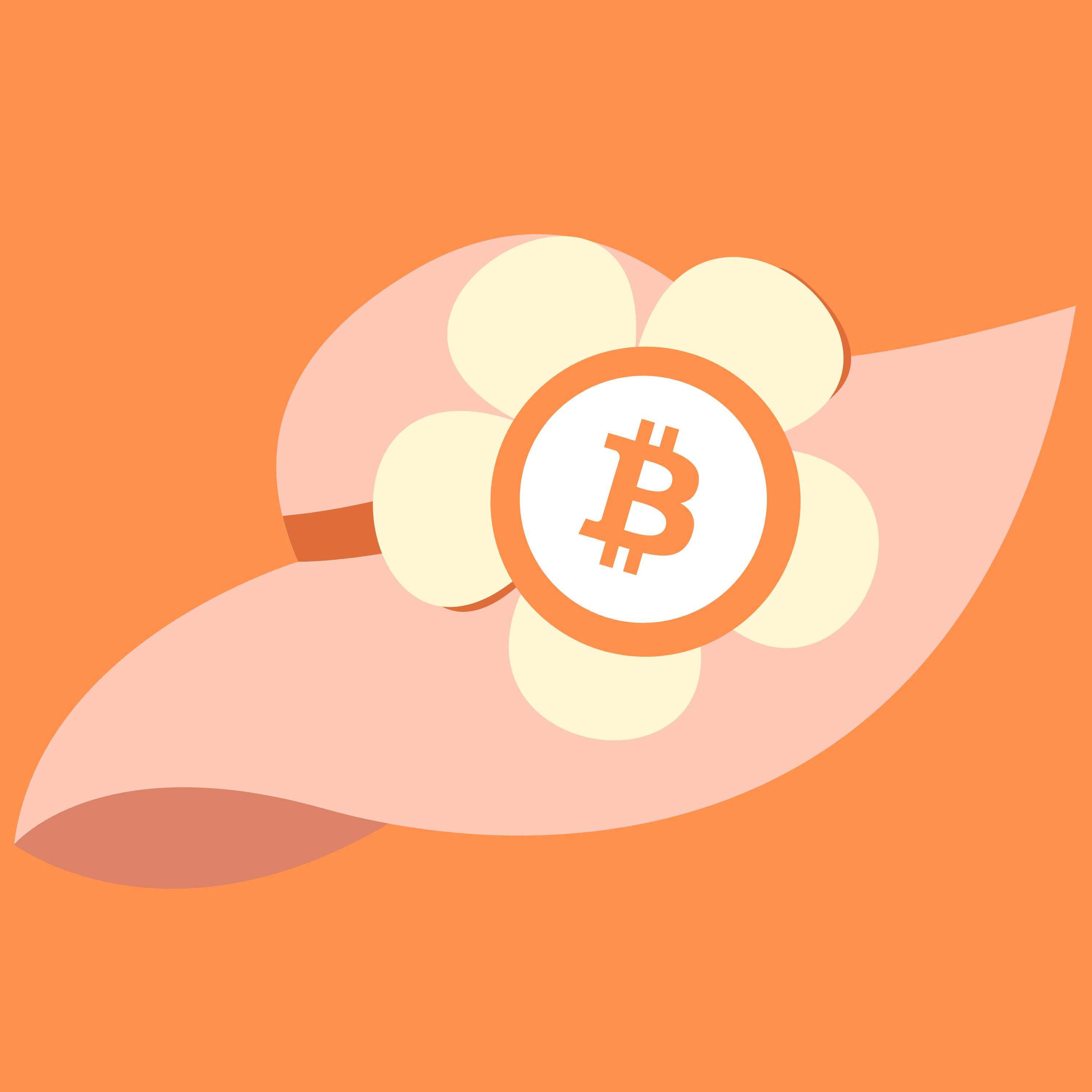Episode 63
Aida "For some countries, Bitcoin is not an investment. Is their path to freedom" - part 1
Community Involvement: Aida's involvement in various meetups like Plebs and Atlanta BitDevs helped her grasp the depth of Bitcoin.
Struggles in Cuba: Aida shares about the constant economic crisis and the volatile nature of currency in Cuba.
Bitcoin as Freedom: For many in unstable economies, Bitcoin isn't just an investment—it's a potential path to financial freedom and stability.
To learn more about Bitcoin: Join the Orange Hatter Women's Reading Club. Visit https://www.meetup.com/womensbitcoinreadingclubwithorangehatter
Please email questions/comments to Tali@orangehatter.com
HODL UP is available at www.freemarketkids.com.
Remember: Knowledge is empowerment! 🍊🎩
Mentioned in this episode:
Aleia Free Market Kids Sponsorship FULL
Get your HODL UP ("The best bitcoin game ever!") at www.freemarketkids.com.
Transcript
Tali: Hi, everyone. Welcome to Orange Hatter. Today, you're listening to a conversation I had with Ada. Hi, Ada.
Aida: Hi.
Tali: Thank you so much for joining us on Orange Hatter and for your willingness to share your Bitcoin story with us. So to get us started, would you mind telling us a little bit about your background?
Aida: Yes.
Thank you for inviting me. It's a pleasure to be here. This is my first podcast. So thank you for the opportunity. My background. Well, my Bitcoin background, I started like many other people with a friend, a good friend of mine that I haven't talked to him in decades. We start talking and we start talking about books and economics and things like that.
And, then he mentioned Bitcoin and Saylor. But before that, we talk a lot about economics, which is always a good way to enter in Bitcoin and understand Bitcoin. So through many economic conversations and me understanding what is the current economy, how it works, what are the concepts and stuff like that makes me understand Bitcoin a little bit.
And then I started going through the rabbit hole, completely, reading books, the Bitcoin Standard, other books about bitcoin and economics. I started very skeptical. So I didn't go and buy it immediately. I was like, yeah, that sounds beautiful.
That sounds good, but let me check first. And then I started checking this and, and then I started looking for the community and the comments and, and all of that. But , what really, really helps you is the education that you will do yourself. So you will have to put some time on reading and studying a little.
It's not that hard either. It's good education, because anyways, we need to learn how the economy works and how the money works and what is money because we just use it, but we don't know it. We don't know in the terms what it is. So it's always good to learn. And also we need to take responsibility of our future.
So we need to learn how to invest. And we know that we outsource that to our jobs. or other third parties. And this is a very good way for us to be sovereign individuals, right? So that's, that's something that I was kind of thinking. And I started looking into stocks and things like that, looking for something that helped me grow my finances, right?
So, and then this friend came along and helped me to understand a lot of things. And then I went to Bitcoin, which has made me going through a beautiful journey, because it's not only to learn about Bitcoin or economics, you learn about many other things about nutrition and values and family and things like that.
So I clicked really quick with all the values that Bitcoin promotes. And I like the community. So that was kind of my first going into this. And then I start, I put a lot of time reading and listening, podcasts and YouTube videos and stuff like that. And then I started looking locally in my community.
what was there about Bitcoin and other people that believe in this and know about this topic and things like that. So I normally did that as part of my job or my professional career. So I normally go to meetups and meet people, network with people that are the same background that I am to try to keep up to date on the technology.
I work on the technology sector. So that is a very, very challenging field to be in because every single day is growing. Every single day is a new thing that we have to study and we have to apply. Now with AI, it's crazy. Like everything we will have to learn. Meetups are good ways to try to keep you up to date.
And then I started looking into that and I found, (I'm in the Atlanta area) and I found this group Atlanta BitPlebs.
I was like, okay, let me take a look at it. And then they had their first meetup and I went to their first meetup and it feels like home because you went there and the people there were like, first of all, when you start in Bitcoin and you come from the fiat world and all your friends are from the fiat world, you don't have people to talk about it.
They have their skepticism and that's okay because that's the way that everybody starts. Right and maybe they are not interested or things like that. And then you find this group with your same interest. where you don't sound like crazy person. So that was great. And in Atlanta, we have a group that is for non technical people where you can go and learn about Bitcoin.
But we talk not very technical topics. We discuss books, for example, we do like a book club. So we have discussed multiple books like The Bitcoin Standard to the Block Size War, 21 Lessons on Bitcoin and some others topics that we have. And we have an update in, uh, economics and what is going on around.
So that's very, very helpful in, in a sense. To have a community and this community is so diverse. You have people from many, many, many backgrounds, and they will help you if you don't understand they will help you and then you will keep up to date with everything that is happening on the space.
And then there is another group that I also, in that, in that one I learned that there was another group that is the Atlanta BitDevs, which I also joined, and we meet every week. Every other week is, one week is Atlanta BitPlebs and the other one is Atlanta BitDevs. So, we alternate, and in the Atlanta BitDevs you will learn the more technical topics, even the non technical people, the community has been so close that even the non technical people have started going to the technical stuff. Even if you don't understand everything, the guys there will help you to understand and explain it in a different ways that you will understand or kind of have an idea of what is going on.
And, and also we have done even on the weekends, we have done different activities, like practical workshops to do practical things because it's not the same when you read something, when you listen to something that when you put your hands on and do it yourself. Like, for example, we have people in our community now running nodes.
And they brought their nodes or somebody in the group was selling the node and then they bought it and configured their node right there with other team members teaching. So, and that kind of teamwork is really, really nice to, to have. And you don't have to pay because that's all the things to you find a lot of resources online and everything, but sometimes you have to pay or in person and things like that you have also to pay.
And in this case it's just us learning together and helping each other. So that's been very, very helpful for me on my learning journey also.
Tali: Yeah, you're so lucky to be so close to those two groups. What a blessing. If we can go back to that first moment when your friend was telling you about economics, which eventually led you down the Bitcoin rabbit hole, you said you became intrigued.
Do you remember specifically what about the economics that he was talking to you about that made you think, Hmm, maybe I should look into Bitcoin?
Aida: Yes, I was kind of ignorant on the economic or very ignorant on the economic field. Because I come from the tech field, so we like the coding things and requirements done and let's get this features and capabilities for the system and this and that, but then we don't see the end.
We have the billing processes and things like that, that you charge for your software and things that you build, but you don't worry about what is happening and what is the machine that runs the whole world that is and how the money works. So in that case, and even when we work in finances, we don't know everything about money.
And even sometimes you don't stop to think, what is money? And what is It's the money do to our lives and how it's created and how other people uses this. And also I am from Cuba, so I had a little bit of background or of how hard is to not have an economy or not. You don't even think about it because.
It's so, the situation is so bad that at some point you don't even care about that anymore because there is like no crisis, no temporary crisis. It's a complete, the full year crisis that you have in your country. Your money is not valuable at all. So it kinds of that ignorance and my curiosity, basically to your question, it was, I think it was my curiosity and my desire to learn and to know more and to help others, because if I know more, I can help others also to learn.
And this interest for me to grow my finances. Yeah, that, that was kind of when I was realizing, I say, well, many people are making so much money. How can I join into this train? How can I do it? How can I help others to make more money and how is it happening? That's why I jump into the stock market and try to start exploring.
And then that's when, when I started. talking to him about this investing and things like that. And he kind of explained and then all the conversations around money and first principles and things like that to help me understand what money is and how it works.
Tali: That's great. I was just wondering if you could give us a little bit more details, like paint a picture for us what it's like to live in a country where crisis is constant and not a temporary thing.
Aida: Yes. So that is, that is a hard question because it's a constant struggle. Your lives becomes just to worry about the food that you're going to put on the table that day because you cannot plan ahead. You cannot plan for retirement. Like in this country, people think about they have their retirement plans and they have all that thinking on the future and then they move to Florida.
That's the stereotypical, right? That people move to Florida and have a beautiful retirement there. You, you don't think about that in Cuba. People, what they do there, first of all, the lucky ones that have a little bit of money to save is the struggle, how to save it because our country have changed the currency multiple times.
The currency is totally devalued, so we don't even, we don't even appear on the inflation charts anymore. Every time people talk about inflation, how inflation grows and everything, they mention Venezuela, they mention Argentina. Cuba is not in the charts! Because we are so done, we don't even are part of those charts.
So it's really hard for the people there. People also use like gold, like buy jewelry sometimes to have the savings and they save in dollars, which is what most of the Latin American countries do, right? And that's the way that they make savings. But for example. We, my, my family, for example, they had some savings once and in one currency, which is, which was not the dollar was another of our currencies in our country.
We, we had two. And then the government decided to switch. So their wealth diminished, right? They lost a lot of money, and now they changed the currency again, and they lost again, and it is constantly like that. It is, it is like that. And for example, right now my parents, they don't, they don't have a retirement right now.
So they work so hard, they work for, for their family, to provide for their family, to build something for their future, to have something, and there is no value of what they have right now. And it's, it's a really, really, really hard. And that's one of the things that makes me think on Bitcoin, because I want to kind of have a something that helps me in the future to not struggle that way, like they do it in in our country.
And like I said, sometimes to people here is in the US, people see it as an investment. In our countries could be is something that will save us or will give us freedom from our government because having a money that nobody can print more, that nobody can change it for something else suddenly, or take it from you and freeze your accounts in the bank.
Having the government hands out of your money. That's awesome. So for some countries, Bitcoin is not an investment. Is their path to freedom.
Thanks for joining us today and learning with us today. If the discussion with our guest resonated with you and you would like to dive deeper into the world of Bitcoin, don't miss out on joining the Orange Hatter Women's Reading Club.
The meetup link is in the show notes. Also, if there are women in your life whom you think will both enjoy and benefit from learning more about Bitcoin, please share Orange Hatter with them. Until next time, bye!


